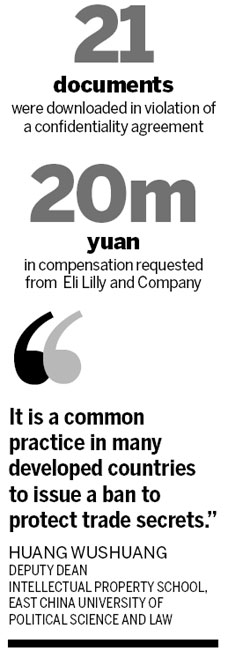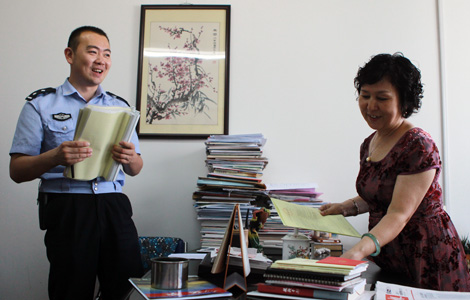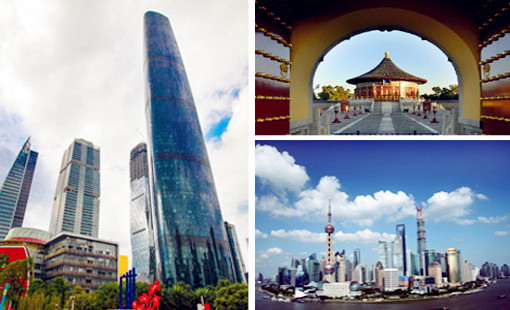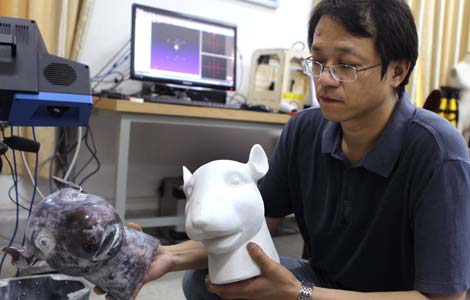Court hands down milestone ruling on trade secrets
Updated: 2013-08-14 07:39
By Hao Nan (China Daily)
|
||||||||
In what is being called a landmark ruling for intellectual property nationwide, a Shanghai court recently issued the country's first ban on the circulation of trade secrets, according to the report from Legal Daily.
Eli Lilly and Company filed the lawsuit early in July with Shanghai No 1 Intermediate People's Court against a former employee surnamed Huang for violating the company's confidentiality agreement.
Huang was formerly an employee at a Chinese research center affiliated with the US drug company. During his contract period, he was legally obligated not to disclose confidential and proprietary information related to the company's marketing strategies to any individuals or organizations.
However, Huang downloaded 21 documents containing the company's business secrets without authorization and was discovered later.
Huang was then fired, but he refused to delete or return the downloaded documents.

The US drug manufacturer sued for an injunction against Huang to prevent him from using and circulating these trade secrets. It also demanded compensation worth 20 million yuan ($3.26 million).
The company also applied for custody of these secrets to prevent possible losses before the case hearing opened.
The court judged in favor of the company, the first ruling of its kind under a revised Civil Procedure Law enacted on Jan 1.
Liu Junhua, a judge at the court, said such injunctions have long been a part of China's Patent Law, Trademark Law and Copyright Law.
But, "trade secrets as a kind of intellectual property rights were not properly protected under judicial practices for a long time", Liu told Legal Daily.
Leakage of trade secrets may cause serious consequences, such as wasting research costs and losing years of accumulated competitive advantages, he said.
The new Civil Procedure Law has filled the gap in protection of trade secrets, he said, which will help the plaintiff prevent damages from secrets being exposed and also an enhanced measure to improve China's IP system.
Before the new Civil Procedure Law went into effect, it was always a top concern among practitioners and academics whether the courts should rule for a ban on the violation of business secrets, said Huang Wushuang, deputy dean of the Intellectual Property School of East China University of Political Science and Law.
So, the civil ruling from the Shanghai court will be precedent for imposing a ban on circulation of trade secrets nationwide.
In recent years, many foreign companies, government agencies and law firms have been unsatisfied with the standards for trade secret protection in China because "it is a common practice in many developed countries to issue a ban to protect trade secrets", he said.
The decision by the Shanghai court marks a significant step toward bringing the nation in line with advanced international practices, he said.
haonan@chinadaily.com.cn
(China Daily USA 08/14/2013 page14)

 Huawei unveil Ascend P6 smartphone in Vienna
Huawei unveil Ascend P6 smartphone in Vienna
 That's one cool game of mahjong
That's one cool game of mahjong
 Isinbaeva leads harvest day for host Russia
Isinbaeva leads harvest day for host Russia
 Perseid meteor shower puts on show in night sky
Perseid meteor shower puts on show in night sky
 Bird flu, slowdown hit sales at fast-food chains
Bird flu, slowdown hit sales at fast-food chains
 PetroChina poised to dominate Iraqi oil
PetroChina poised to dominate Iraqi oil
 Marriage attitudes slowly change
Marriage attitudes slowly change
 On frontline of fight against crime
On frontline of fight against crime
Most Viewed
Editor's Picks

|

|

|

|

|

|
Today's Top News
Brazil demands clarifications on NSA surveillance
2nd-generation ID cards to include fingerprints
Chinese students boost boarding business in US
TCM chain probed after illegal house exposed
Friends of accused Boston bomber due in court
Economic hub on Bohai Bay
PM to visit China for milk scare
Donors of organs easing transplant shortages
US Weekly

|

|




